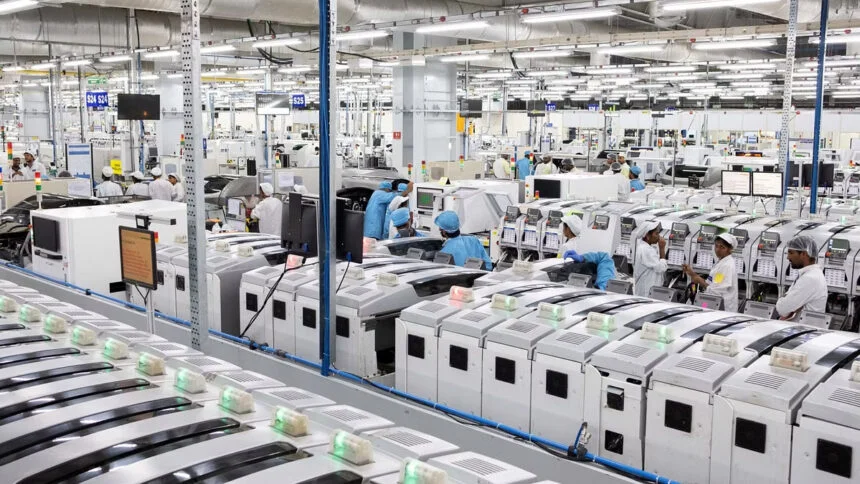According to sources familiar with the situation, Apple Inc. partner Foxconn Technology Group intends to spend around $700 million on a new plant in India to increase local production, reflecting an accelerated transfer of production out of China as Washington-Beijing tensions rise.
The main hub of the flagship mobile’s worldwide supply chain is China, where production has been hampered by last year’s tough Covid regulations and ongoing diplomatic difficulties with the United States.
According to the persons who asked not to be identified because the information is private, the Taiwanese corporation, well known for its flagship unit Hon Hai Precision Industries Co., intends to construct the facility to manufacture iPhone parts on a 300-acre property close to the airport in Bengaluru, the capital of the southern Indian state of Karnataka.
According to some of the sources, the plant may potentially assemble Apple’s mobile devices. Foxconn may also utilise the location to make some parts for its nascent electric vehicle industry.
Basavaraj S. Bommai, the chief minister of Karnataka state, tweeted on Friday that “Apple phones to be built in the state soon.”
He further added that “Apart from creating about 100,000 jobs, it will create a whole lot of opportunities for Karnataka.”
In the state where Bengaluru, India’s tech powerhouse, is located, the projected facility will be spread out over 300 acres, according to Rajeev Chandrasekhar, India’s minister of state for information technology.
Following a meeting with Prime Minister Narendra Modi earlier this week, Foxconn Chairman Young Liu made the news while visiting that city on Friday, according to local media.
The investment highlights how China is in danger of losing its position as the top maker of consumer electronics in the world and is one of Foxconn’s greatest single outlays in India to date. The Chinese-based suppliers of Apple and other US businesses are encouraging them to look into alternate countries like Vietnam and India.
The pandemic and the crisis in Ukraine have expedited a rethink of the world’s supply chain that could alter how electronics are produced globally.












